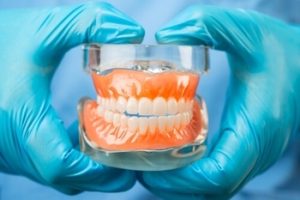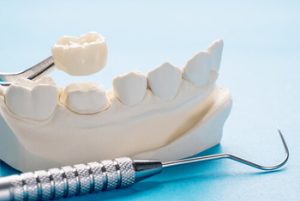Dentures have long been a reliable and effective solution when it comes to replacing missing teeth, especially after tooth loss. But have you ever stopped to wonder: what are dentures made of, exactly? Whether you’re exploring full dentures, partial dentures, or even implant-supported dentures, understanding the materials behind these dental appliances can make a world of difference in choosing what’s best for your smile.
Let’s take a warm, professional, and detailed journey through the fascinating world of modern dentures and what makes them an essential part of restorative dentistry today.
So, What Are Dentures Made Of?
However, not all dentures are created equal. The materials used can vary based on the type of denture, budget, patient needs, and dentist’s recommendations.
Let’s dive deeper into these components and explore the materials used to create them.
The Denture Base – The Foundation That Holds It All Together
The denture base is the part that sits snugly against your mouth’s gums and soft tissues. It’s responsible for holding the artificial teeth in place and providing structural support to the entire appliance.
Here are the most common materials used for denture bases:
Acrylic Resin: The Everyday Hero
Acrylic resin is among the most commonly used materials for dentures. It’s durable, affordable, lightweight, and easy to mould for a perfect fit. Most conventional dentures and removable partial dentures are made from acrylic.
Pros:
- Budget-friendly
- Easy to adjust
- It can be tinted for a more natural appearance
Cons:
- Not as strong as metal alternatives
- It may wear down over time
Metal Frames: A Touch of Strength for Partial Dentures
For removable partial dentures, a metal frame, often made from cobalt-chromium alloy, offers excellent strength and durability. The metal framework provides added stability and is ideal for patients with several remaining natural teeth.
Pros:
- Strong and long-lasting
- Thinner and less bulky
- Great for structural support
Cons:
- Not suitable for people with metal allergies
- Less aesthetic (though usually hidden)
Flexible Base Materials
Some newer partial dentures use flexible thermoplastics like nylon. These adapt well to the patient’s mouth and offer better comfort for some wearers.
Pros:
- Lightweight and comfortable
- No metal clasps
- More discreet
Cons:
- Harder to adjust or repair
- Not ideal for full dentures
Denture Teeth – Where Function Meets Aesthetics
Denture teeth, or artificial teeth, must look natural and function just like real teeth. They come in various shapes, shades, and materials to suit each patient’s needs and smile.
Acrylic Resin Teeth
Most denture teeth are crafted from acrylic resin. These are popular due to their ease of fabrication, adaptability, and natural appearance.
Pros:
- Easily coloured to match natural teeth
- Bonds well with acrylic denture bases
- Lightweight and safe
Cons:
- It may wear out faster
- Can stain if not cleaned properly
Porcelain Teeth – Durable and Life-Like
Porcelain teeth, or porcelain dentures, offer superior aesthetics and hardness, making them a favourite for many denture wearers.
Pros:
- Very natural appearance
- More resistant to staining
- Hard and durable
Cons:
- It can cause wear on natural teeth if they come into contact
- More brittle (can chip or crack)
- Heavier than acrylic
The Denture Fabrication Process – How Are Dentures Actually Made?
Let’s walk through how dentures are made, from the initial impression to the final fitting.
1. First Dental Appointment – Getting Started
It all begins at your dentist’s clinic. After assessing your oral health, they’ll discuss your needs, whether you require full dentures, removable partial dentures, or an immediate denture following tooth extraction. This is also when your dentist considers the number of remaining teeth and the condition of your soft tissues and jawbone.
2. Initial Impressions – Capturing the Shape of Your Smile
Your dentist takes an initial impression of your upper and lower jaw using a soft, putty-like material. This mould serves as a first reference to map out the structure of your patient’s mouth, including any remaining natural teeth, gum contours, and bite alignment.
3. Creating the Wax Rim – Laying the Groundwork
A wax rim is created to simulate your upper and lower teeth. This step is critical in determining your correct position, bite, and how your jaws align. Your dentist will assess facial proportions, lip support, and even how your smile looks from the front.
This is also when you’ll choose the shade and shape of your denture teeth for the most natural appearance.
4. Try-In Stage – Testing Before Finalising
Here’s where the magic starts to feel real. A mock-up version of your dentures—built from wax with the selected artificial teeth inserted—is tried in your mouth. This temporary denture allows you and your dentist to assess:
- Fit and comfort
- Speech and bite
- Smile aesthetics
Adjustments can still be made at this point to ensure the final result is just right.
5. Final Denture Fabrication – Bringing It All Together
Once the try-in is approved, the design heads to a dental lab for the creation of your final denture. Depending on your choice and recommendation, the technician uses materials like acrylic resin, porcelain, or a metal frame to construct the final product.
Heat and pressure processes are applied to shape and solidify the denture base, ensuring it is smooth, durable, and customised to your gums.
6. Fitting Your New Dentures – It’s Time to Smile!
Your new dentures are finally ready! At this appointment, your dentist checks for:
- Fit and suction
- Pressure points or discomfort
- Speech and chewing function
- Denture fitting and alignment with any remaining natural teeth
If needed, final adjustments are made on the spot or over the next few weeks as you begin wearing dentures and your mouth adapts.
7. Ongoing Adjustments – Getting It Just Right
Even the best dentures may require fine-tuning after a few days or weeks of wear. Your gums and bones can shift slightly, especially after tooth loss, so visiting your dentist regularly is key for:
- Relining loose dentures
- Fixing sore spots
- Checking for fungal infections
- Ensuring long-term oral health
Creating dentures is a thoughtful process that balances form, function, and comfort. Whether you’re replacing a single tooth with a partial plate or starting fresh with complete dentures, the right steps and denture materials can make all the difference in your journey toward a confident, functional smile.
Full vs. Partial Dentures – What’s the Difference in Materials?
When it comes to replacing teeth, one of the most common questions patients ask is: “Should I get full or partial dentures?” While both options aim to restore your smile and chewing ability, the type of denture you need—and the materials used—can vary significantly depending on how many natural teeth you still have.
Let’s unpack the difference between full dentures and partial dentures, focusing on the denture materials used in each.
Full Dentures – When You’re Starting from Scratch
Full dentures—also known as complete dentures—are designed for people who’ve lost all their upper and lower teeth, whether due to age, gum disease, injury, or severe decay. These dentures are crafted to sit snugly on the gums, restoring the look and function of a full set of upper and lower teeth.
Materials Used in Full Dentures:
- Acrylic Resin: Most full dentures are made from acrylic, which is soft enough to be shaped but strong enough for daily use. The denture base is usually coloured to match natural gum tissue for a realistic look.
- Acrylic Resin Teeth or Porcelain Teeth: You can choose between acrylic resin teeth (lightweight and gum-friendly) or porcelain teeth (more durable and aesthetically sharp).
- Optional Metal Reinforcement: Some full dentures incorporate a thin metal layer inside the base for added structural support, especially in the lower jaw, where stability is more difficult to maintain.
Partial Dentures – When You Still Have Some Natural Teeth
Partial dentures are ideal for individuals who still retain several natural teeth. They help bridge the gaps caused by missing teeth and anchor securely to the remaining teeth for added support. This not only enhances appearance and function but also helps prevent neighbouring teeth from shifting out of place.
Materials Used in Partial Dentures:
- Metal Frame (Cobalt-Chromium Alloy): Most traditional removable partial dentures use a metal frame for strength and a secure fit. This framework includes clasps that attach to your natural teeth.
- Flexible Base (Nylon): For a more discreet and comfortable fit, some modern dentures use flexible, gum-coloured materials that don’t require metal clasps.
- Acrylic Resin Base: A more economical choice, often used for temporary dentures or cases where future dental changes are expected.
- Artificial Teeth: Just like full dentures, denture teeth in partials are made from either acrylic resin or porcelain, chosen for their natural appearance and wear resistance.
Implant-Supported Dentures – A Modern Twist
Implant-supported dentures use titanium dental implants placed in the jaw to anchor the denture. These dentures may be either removable or fixed and provide a notable improvement in both stability and chewing function.
Benefits:
- Prevents bone loss after tooth extraction
- Better fit and comfort
- No need for adhesives
Implant-supported options often use the same denture materials but with a stronger base and a more rigid design.
Temporary vs. Permanent Dentures – What’s the Material Difference?
- Temporary dentures (or immediate dentures) are usually made from softer acrylics for quick fabrication and comfort while healing.
- Permanent or final dentures use high-quality acrylics, porcelain, or even composite materials for long-term wear and durability.
Why the Right Materials Matter
Choosing the right material isn’t just about comfort or appearance—it’s also about longevity, oral health, and overall function. A poorly fitted or poorly made denture can lead to:
- Gum irritation
- Fungal infections
- Difficulty chewing
- Accelerated bone loss
- Poor speech and aesthetics
That’s why it’s essential to see your dentist regularly and get proper care and adjustments when needed.
How to Care for Denture Materials the Right Way
Cleaning dentures properly ensures they last longer and stay fresh. Whether you have porcelain dentures, acrylic resin teeth, or a metal frame, follow these tips:
- Use a soft-bristled brush
- Avoid harsh chemicals or boiling water
- Rinse dentures after meals
- Soak in denture-cleaning solution
- Clean your mouth and remaining natural teeth daily
What About Animal Teeth?
In the past, false teeth were sometimes made from animal teeth or even ivory. Thankfully, modern dentures rely on safe, ethical, and more comfortable materials like acrylic, porcelain, and metal alloys. No more worrying about brittle bones or questionable origins!
The Best Dentures Are the Ones Made Just for You
Every mouth is different, which is why denture fitting, selection of materials, and customisation should be tailored to your needs. The best dentures are those that balance comfort, function, and beauty—whether you’re wearing full or partial plate, acrylic or porcelain, traditional or implant supported.
Frequently Asked Questions
- How long do dentures typically last?
With proper care and regular dental check-ups, most dentures last between 5 to 10 years. However, changes in your mouth over time may require relining, repairs, or a complete replacement.
- Can I sleep with my dentures in?
While it’s possible to sleep with dentures in, dentists usually recommend removing them at night to give your gums and soft tissues time to rest and recover.
- Do dentures feel uncomfortable at first?
Yes, it’s normal to experience mild discomfort, increased saliva flow, or slight irritation when first wearing dentures. These sensations typically subside as your mouth adjusts. Follow-up visits can help fine-tune the fit.
- Will dentures affect how I speak?
At first, you might experience a slight lisp or find some words tricky to pronounce. Practising out loud—such as reading aloud or chatting with yourself—can speed up your adjustment to speaking with dentures.
- Can I eat normally with dentures?
Yes, but it may take some time to adapt. Start with soft foods cut into small pieces and gradually reintroduce more challenging textures. Denture wearers often regain excellent chewing ability with practise—or opt for implant supported dentures for more stability.
Final Thoughts – Dentures Are More Than Just False Teeth
Whether you’re considering removable partial dentures, a complete denture, or stepping into the world of implant supported options, understanding what dentures are made of is the first step in making an informed and confident choice.
Need Help Choosing Your Dentures?
Speak with your local dentist about the best options for your situation. They’ll guide you through the process—from the initial impression to the final adjustments, ensuring you end up with the perfect smile solution.
For expert advice and high-quality dentures, contact Available Dental Care, our local dental team in the Campbelltown area, on (02) 4062 8763 or (02) 4628 0573 to book a consultation today.
Note: Any surgical or invasive procedure carries risks. Before proceeding, you should seek a second opinion from an appropriately qualified health practitioner.
References:
Healthline. (n.d.). Partial dentures: Costs, types, and how to wear. Retrieved from https://www.healthline.com/health/dental-and-oral-health/partial-denture
Cleveland Clinic. (n.d.). Dental impressions. Retrieved from https://my.clevelandclinic.org/health/diagnostics/22671-dental-impressions
FDI World Dental Federation. (n.d.). Dental implants. Retrieved from https://www.fdiworlddental.org/dental-implants
Skinner, E. W., & Cooper, E. N. (1967). Physical properties of acrylic resin base materials. The Journal of Prosthetic Dentistry, 18(2), 165–172. https://www.sciencedirect.com/science/article/abs/pii/S0022391367800106
MedlinePlus. (n.d.). Dentures. Retrieved from https://medlineplus.gov/dentures.html#:~:text=Dentures%20are%20false%20teeth%20made,one%20or%20a%20few%20teeth.




